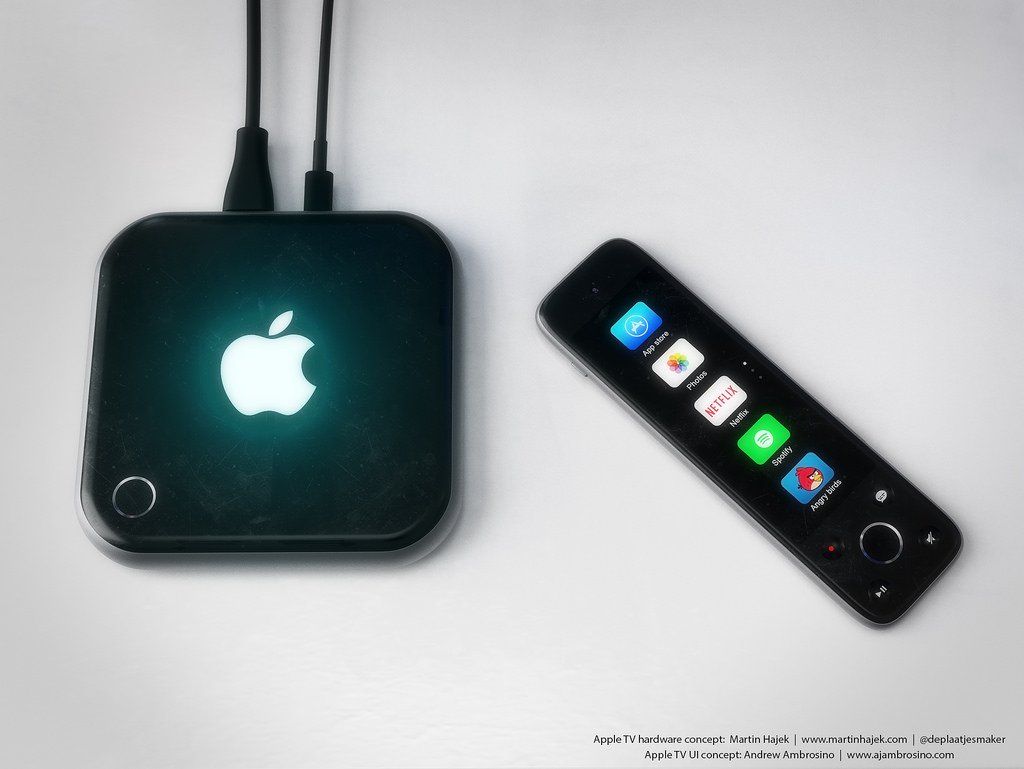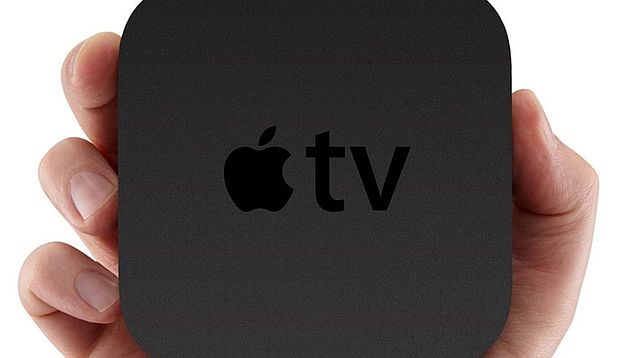Apple is holding its now traditional September event to introduce new iPhones tomorrow, but there are several important differences to note. First, Apple is holding this event in the Bill Graham Civic Auditorium in San Francisco, which has roughly ten times the amount of space as its usual venue — and they’re not inviting any more press people than usual. What could be the reason for this extra space The rumors from multiple sources converge on one main reason: The debut of the new, upgraded Apple TV, and the need to provide adequate space to give the press hands-on experience with the devices.
Certainly Apple will be talking about many exciting new devices, software and services at this event, but the Apple TV is getting most of the attention. The device, which has sold over 25 million units so far, has been called a “hobby” by Apple, and not something worthy of the company’s serious attention. That’s about to change in a big way tomorrow, with a potentially a major impact on the games industry. In fact, The New York Times reported on the device this weekend with the headline “New Apple TV is Said to Focus on Games, Challenging Traditional Consoles.”
The rumors say the new Apple TV will be powered by a version of Apple’s A8 CPU/GPU combo, with either eight or 16 GB of RAM for $149. The new remote that comes with the Apple TV will have full Siri voice control, a touchpad, two or more buttons, and motion-sensors inside it. The combination could provide plenty of interesting control possibilities for games, and the Apple TV will also support a variety of third-party controllers with a full array of traditional console controls. Most importantly, the Apple TV will finally have its own App Store, so developers can provide endless apps for the device — which, of course, means thousands of games in short order. Existing mobile games should be easy to port, and new games could be created specifically for the device.
The [a]listdaily asked a number of industry leaders and analysts about the potential impact of the new Apple TV on the games industry, and found no particular consensus. “Apple’s all-in commitment to support games on the iPhone was one of the biggest surprises ever in the game business, and has been the driver of this ‘golden age of gaming,'” noted Bing Gordon, general partner and chief product officer at leading venture capital firm Kleiner Perkins Caufield & Byers (and formerly chief creative officer at EA for many years). “If Apple brings this level of energy and expertise to TV, it will be great for gamers.”
That’s a much more positive view than research analyst Michael Pachter of Wedbush Securities holds. “I don’t think most people give it a lot of upside,” said Pachter. “Apple TV can’t handle anything more than mobile games unless they wrestle with the same problems faced by OnLive. If they can’t get streaming of robust games to work real-time, they’re stuck with asynchronous mobile games. While I’m sure people will play mobile games on their TVs, it isn’t that much more immersive than playing on a tablet, and Fire TV Stick and Chromecast both let you do the same thing. The installed base of Apple TV users is an asset, but it’s not clear to me that people are dying to play Flappy Bird on their TVs.”
 Apple TV concept art
Apple TV concept art
Taking a more measured view, SuperData CEO Joost van Dreunen saw the potential in the numbers. “Given those assumptions, at first glance an updated Apple TV with a focus on games appears pregnant with promise,” said van Dreunen. “Certainly, the market for iOS-based games is substantial at almost $5B in revenues in the US and at a price point of $150 USD it is within the reach for a large addressable market.”
Still, van Dreunen also sees the potential pitfalls, and they are not trivial. “That said, it lacks appeal for the bulk of the mobile gaming audience,” van Dreunen continued. “Mobile gamers are just that: They prefer to play on their smartphone or tablet and are much less likely to play on a big screen in their living room. Console gamers, on the other hand, which are in the habit of spending hundreds of dollars on a dedicated device are looking at an action-packed holiday season with a slew of releases coming up. Even if they’d consider playing Angry Birds on the big screen, which they won’t, they’ve already spent their money on a next gen console and are eagerly awaiting to fill out their library with new titles. Without either of these audiences buying into gaming on the Apple TV, it will likely remain a smaller business for Apple.”
Wanda Meloni, founder of M2 Research, thinks that Apple’s opportunity was far better years ago. “At the consumer level Apple TV has the potential to make an impact with a certain demographic – families with young children. Outside of that I’m not sure how they will be perceived by consumers,” Meloni said. “I would have liked to have seen Apple enter the market several years ago. From a developer standpoint I think Apple has been very much a walled-garden. If they want to get developers support they need to start engaging with developers more directly.”
“M2 Advisory Group researched developers and our findings showed that many developers were planning to move development from iOS to other platforms such as Steam and Sony,” Meloni continued. “What we are seeing right now is an ecosystem in flux as developers are unable to sustain raising acquisition costs on top of 30 percent revenue share. It’s driving them to explore other platforms to develop for and there are a number of competitors they will need to content with including Amazon, Sony, Google, Valve/Steam, and Razer/Ouya.”
Clearly no one expects the Apple TV to easily conquer the gaming market. Equally, though, no one is counting Apple out of the potential to sell tens of millions or even hundreds of millions of Apple TVs over time, creating a very large market for games. It’s worth realizing that on a technical level, the new Apple TV equals or surpasses the capability of Nintendo’s Wii console (in everything but storage space) that sold over 180 million units, mostly on the strength of easy to play games like Wii Sports that brought in a very wide demographic. Apple’s got an enormous audience of over 800 million iOS users (and their credit card data!), a vast library of games, and plenty of other strong reasons for people to purchase an Apple TV (such as the rumored bundle of cable channels that will be offered next year, which could precipitate a cord-cutting revolution).
The two key factors that could drive the success of the new Apple TV are Apple’s level of support for the platform as a game console, and the level of support from developers. Successful consoles usually have unique experiences (“exclusives”) that are so compelling they drive people to buy the console. Apple could arrange for those — a $1 billion investment in getting top developers to create exclusives (which is less than one percent of Apple’s cash on hand) could create dozens of compelling games youd find nowhere else. That seems like an unlikely move based on Apple’s past history, but the latest rumor making the rounds has Apple considering investing in original video content for the Apple TV, much as Netflix and Amazon have done with award-winning series like House of Cards. If Apple could do that, why not some amazing games as well
Finally, much of what Apple TV might become as a game platform is up to developers. Will big publishers port hit games like Call of Duty or Madden NFL to Apple TV Will smaller studios get creative and do something ground-breaking on this new device Or will we just see a stream of quick-and-dirty ports of existing mobile games to pick up a little extra revenue, and no great games that really create enthusiasm and passion
There’s no telling which way this will go right now, but the event should provide some clues, and the rest of this year will give us more information to go on.

